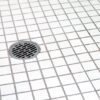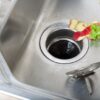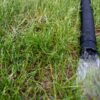Category: Drain Cleaning
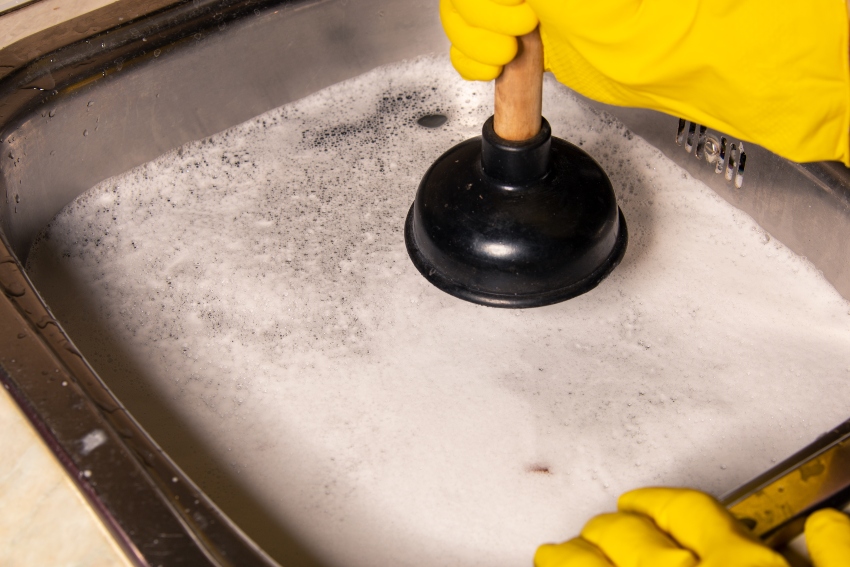
Winter Plumbing Maintenance Reminders
Winter is extra tough on our home’s plumbing system, and we’re currently in the middle of the season’s coldest months. Follow these winter plumbing maintenance reminders to help avoid major issues and costly repairs.
Protect Your Pipes from Freezing
Frozen pipes are probably the most common winter plumbing problem, especially here in Minnesota. When the temps drop way down and harsh winds blow, the plumbing in exterior walls is at an even higher risk. Follow these guidelines to help prevent frozen pipes:
- Keep the furnace running. If you want to lower the thermostat at night or when you’re away, it’s recommended to go no lower than 55 degrees (closer to 60 if extreme cold and high winds are expected).
- Open kitchen and bathroom cabinet and closet doors. This allows warm air to reach and circulate around the plumbing.
- Leave faucets dripping/trickling overnight. On extremely cold nights, allowing the water to run, even minimally, helps prevent them from freezing.
Be sure you know where your home’s main water valve is located for quick, easy access should a pipe freeze or burst. In that case, close the valve and call your local plumber.
Keep Your Drain Lines Clear
Food particles, soap scum, hair, and other debris naturally collect in pipes over time and cause clogs. They’re more susceptible in winter, however, as the cold, harsh weather can stiffen and solidify these blockages more rapidly. Professional drain cleaning service is recommended every two years, and you can help keep your drains clear with these tips:
- Use strainers to catch common blockages. Debris can’t collect and clog your drain if it doesn’t get in to begin with! Cover sink and tub drains (especially in the bathroom and kitchen where they’re used most often) with strainers to collect large particles and then toss them in the trash.
- Never dump fats, oils, or grease down the drain. These are common clog culprits because they cool as they move through the pipes, coating the interior walls, solidifying, and building over time. These items should be disposed of in the trash – if they’re hot from cooking, collect them in an empty jar or coffee can to cool first.
- Don’t dump coffee grounds down the drain or garbage disposal. Since coffee grounds don’t break down in water, they don’t grind up and wash away like other food particles. Instead, they clump together and form a clog over time. Throw old coffee grounds in the trash rather than down the drain.
- Pour hot or boiling water down drains, especially in the kitchen. Not only will this heat up the cold pipes and help loosen any gunk buildup, hot water also makes the natural oils of food products move faster and more easily through the drain. However, use cold water while running the disposal to prevent those oils from liquefying and adhering to the blades.
- Use baking soda and vinegar for a homemade drain cleaner. Store-bought drain cleaners may help clear clogs, but they can also eat away at the pipes themselves. Instead, pour 1/2 cup of baking soda down the drain, followed by 1/2 cup of vinegar, and then let it sit for at least 30 minutes before rinsing with a pot of boiling water. Vinegar’s acetic content makes it an organic solvent that will naturally break down buildups in the pipes, and the baking soda absorbs odors to help keep the sink smelling fresh.
Remember that garbage disposals are designed for grinding and draining scraps of food, so large pieces should be scraped into the trash. Try to get dishes as clean as possible before washing to limit the amount of debris getting into your drain. If you experience clogs, backups, or other drainage issues, contact your local drain cleaning pros at Robillard.
We’ve made it through the holidays and into 2021, but there are still plenty of cold days ahead of us here in Minnesota. Use these winter plumbing maintenance reminders to help prevent inconvenient issues and expensive repairs or replacements.
For all your plumbing service and product needs, trust the experienced master plumbers at Robillard. Contact us today to learn more.
Read More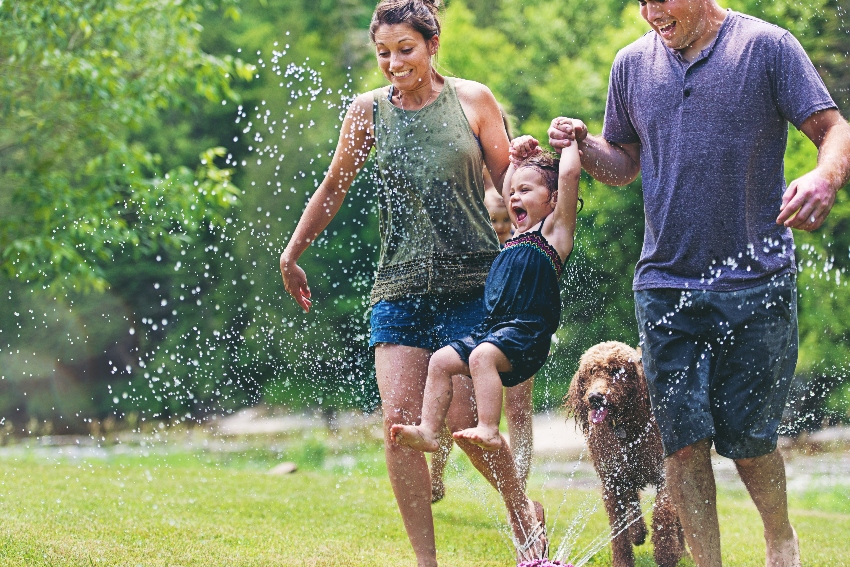
Summer Plumbing Preparation Tips
Warmer weather and longer days are finally upon us here in Minnesota. As we make the official transition to summer, it’s important to make sure our plumbing is as ready for the season as we are. Use these summer plumbing preparation tips to help protect your home from major problems down the road.
Summer Plumbing Preparation Checklist
- Test outdoor faucets and hose bibs (spigots). If any of them drip or you notice leakage inside the home the first time the hose is turned on, there may be a pipe that froze in the winter, cracked when it thawed, and needs to be replaced.
- Clear debris from yard drains and gutters/downspouts. Pine needles, leaves, and other debris can build up in these systems over the long Minnesota winters. Be sure rain and wastewater can flow freely away from the house to prevent leaks and backups that can cause water damage.
- Remove obstructions from sprinkler system. Clogged sprinkler heads can lead to increased water pressure and potentially burst the system’s water main. Clear any blockages now, and remember to check for dirt, grass clippings, and other obstructions throughout the season.
- Make sure your sump pump is clean and working properly. Dump a bucket of water into the sump pit to see that it activates, safely removes the water, and shuts off without issue. Make sure the line is clear of debris and consult the owner’s manual for cleaning. Contact your local plumber if you detect any issues to prevent potential flooding.
- Check toilets for damage and operation issues. Thoroughly inspect the bowl and tank for cracks/leaks that need to be fixed. Make sure toilets flush properly – if the handle needs to be held down for a thorough flush or frequently runs after flushing, you may need to replace worn tank parts. Make these inexpensive fixes now to prevent costly repairs or replacements later on.
- Inspect faucets for drips or leaks. They may seem small, but the extra (and unnecessary) water use will add onto your bill. Identifying these simple repairs early on can also help prevent more expensive issues in the future.
- Check exposed and exterior water pipes. Piping located in basements, below sinks, outdoors, and in your exterior walls are more susceptible to freezing in the winter. Make sure they’re free of cracks and leaks.
- Test your home’s water pressure. Make note of the water pressure when you take showers or use a sink. If it’s low, there could be a leak somewhere in your system that should be addressed by a plumbing professional.
- Schedule professional drain testing/cleaning. Clogged drains can lead to backups and other major issues, so plan ahead. We recommend homeowners have their drains tested and cleaned every two years, or sooner should they notice a problem.
- Pour a gallon of water into infrequently used drains (including floor). This will fill the trap and prevent odors from entering the home, and also let you see if the drains are slow and need to be snaked or cleaned to ensure proper draining in the event of a flood.
- Check your water heater. Make sure the temperature is no higher than 120 degrees to reduce energy use and prevent scalding water. Drain several gallons of water to flush harmful, corrosive sediment from the unit. If you notice any signs of corrosion or leaks (i.e. puddles on the floor, rust or soot by the control panel) and/or your unit is 15 years or older, consider replacing your water heater.
- Turn the main water valve off and on. Left untouched, the valve can become difficult to turn over time. Simply close and reopen the valve to prevent its parts from sticking in place in case you ever need to shut off the supply.
While it’s impossible to guarantee you will never face plumbing issues as a homeowner, being vigilant and understanding what to look for can greatly reduce the risks. Use these summer plumbing preparation tips to help keep your home safe while you and your family enjoy the season. From inspections and installations to emergency repairs and replacements, you can rely on the master plumbers at Robillard Plumbing for all your plumbing service and product needs. Contact us to learn more.
Read More
